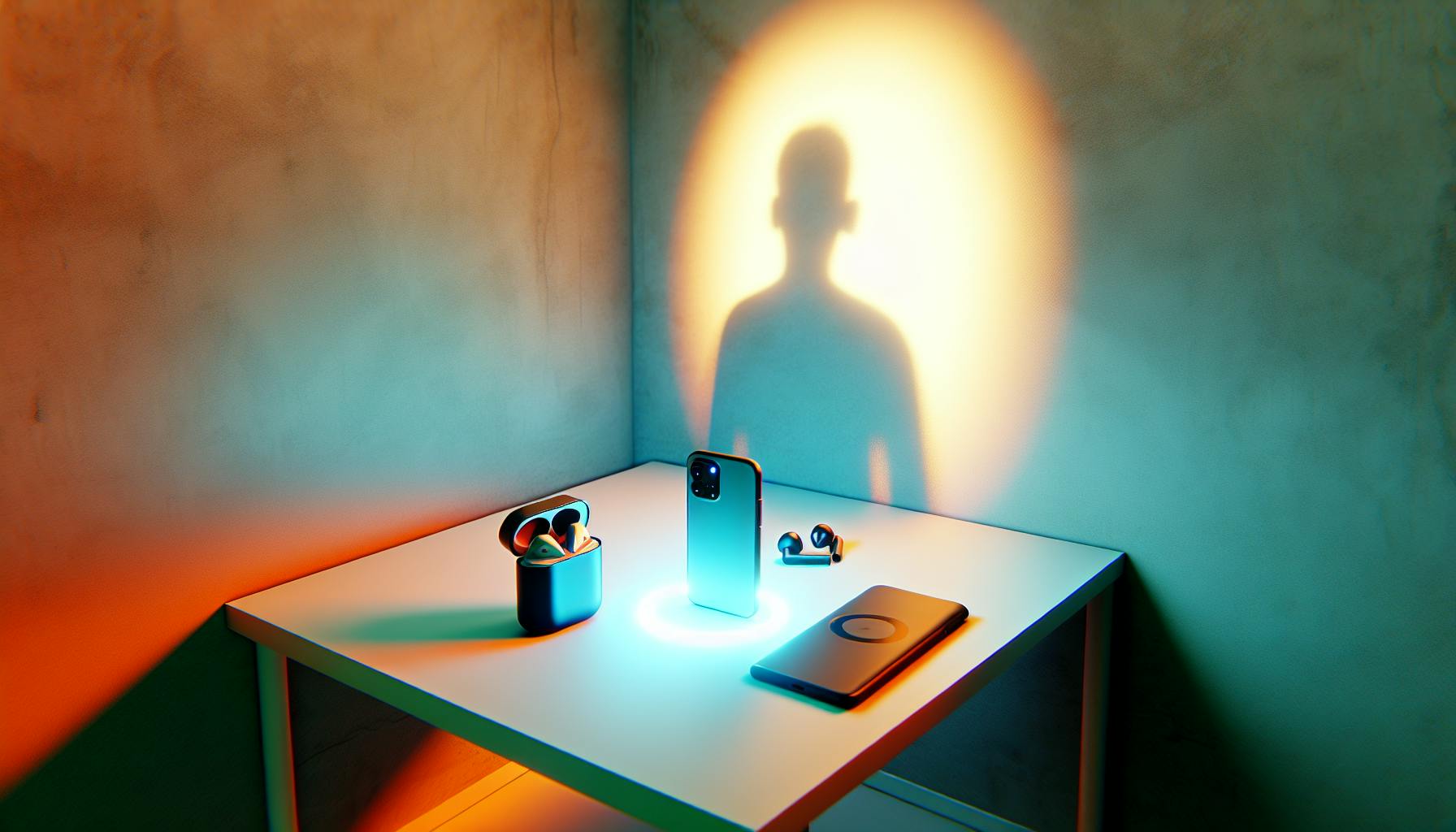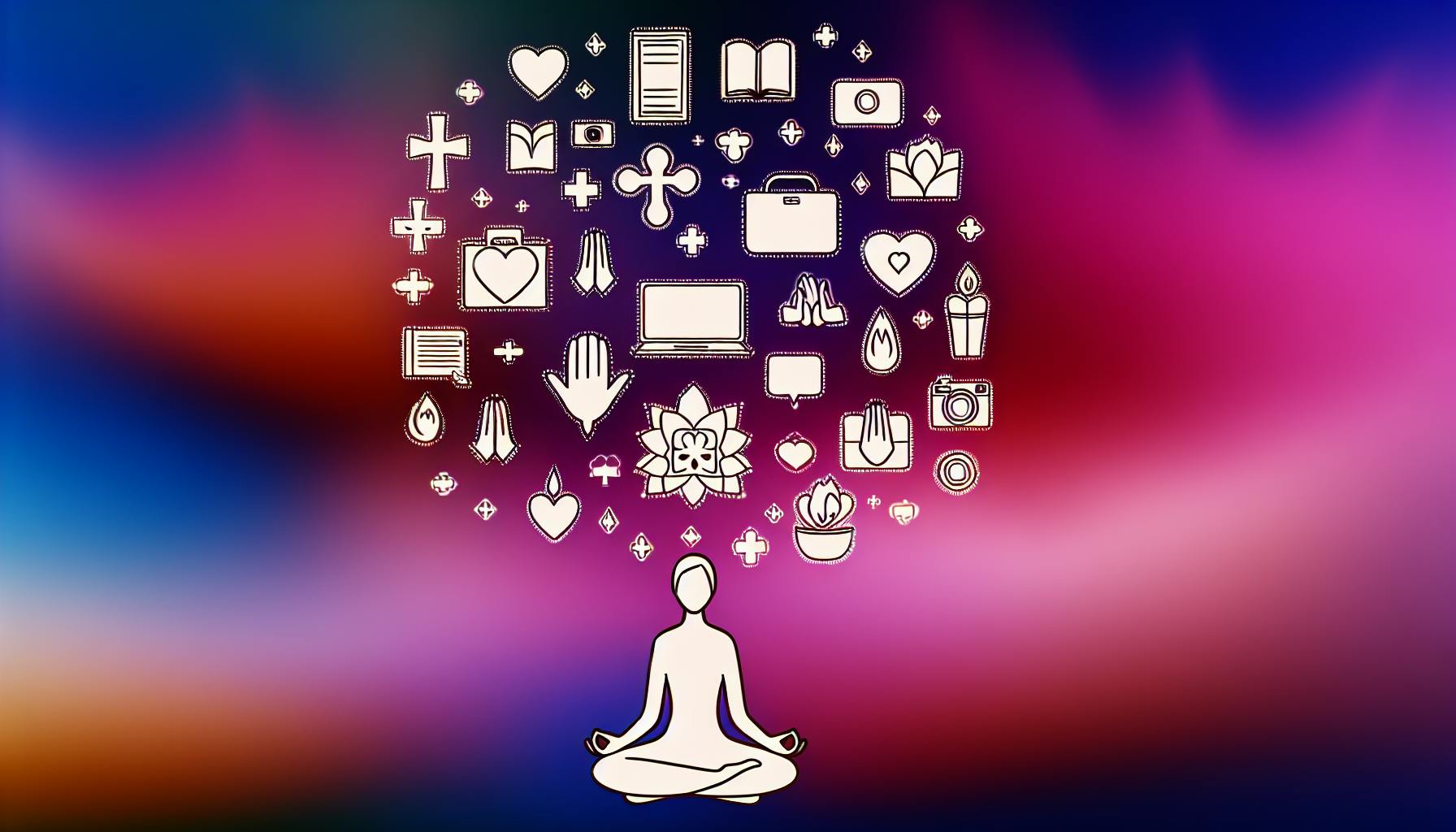Many YouTube creators are stepping away from the platform, driven by burnout, policy changes, and financial difficulties. Here’s a quick breakdown of why:
- Burnout: The pressure to constantly create new content is taking a toll on creators' mental health.
- Platform Policy Changes: YouTube's shifting algorithms and stricter rules make it harder for creators to succeed.
- Financial Struggles: The platform's revenue sharing model leaves creators wanting better compensation.
- Seeking Creative Freedom: Creators are moving to platforms that offer more autonomy and better ways to connect with their audience.
This shift raises questions about YouTube's future and its appeal to both new and established creators.
YouTube's Appeal for Creators
YouTube started as a place where anyone could post videos. It was all about letting people share their ideas and stories without having to go through TV stations or movie studios.
Freedom of Expression
From the beginning, YouTube made it easy for anyone to get started. You didn't need permission or a lot of money; all you needed was a camera and an idea. This open-door policy meant you could talk about anything or show off any talent without someone else saying no. It was a big deal because it let people be real and direct with their audience.
Revenue Potential
As more people watched YouTube, the website found ways to let creators make money from their videos. This was exciting because it meant if you got a lot of people to watch your videos, you could actually earn a living from it. YouTube set up several ways to do this, like:
- Sharing money from ads that play before or during videos
- Channel memberships
- Super chats and stickers during live streams
- Selling stuff right from your video page
Being able to make money while being creative was a huge reason why so many decided to stick with YouTube and try to make it their full-time job.
Rise of Burnout
More YouTubers are feeling really tired and stressed out from making videos. Some have even decided to take breaks or completely leave YouTube because it's affecting their mental health.
Key Statistics
- A study found that more than half of YouTubers feel worn out from creating videos.
- About three-quarters of those feeling tired have thought about stopping or taking a long break from YouTube.
- The main reasons for feeling this way are the pressure to keep coming up with new videos, changes in how YouTube decides what videos get seen, dealing with people copying their work, and not liking some of YouTube's rules.
These numbers show that feeling stressed from making videos is a big problem that needs to be solved.
MatPat's Departure
MatPat, who makes gaming videos and has over 16 million followers, said he's taking a break for a while. He's been making videos for more than ten years and is really tired.
In his video, he talked about how hard it's been to keep making videos, run his business, take care of his team, and spend time with his family.
MatPat leaving shows that even YouTube stars can get really stressed from the work. He's started a good conversation about how important it is to take care of your mental health and find a balance when you're on YouTube for a long time.
YouTube's Shifting Landscape
Algorithm Changes
YouTube has changed how it decides which videos to show people. Here are some big changes:
- Longer videos are in: YouTube now likes videos that are long and come out often. This means creators feel pushed to make longer videos, like TV shows, even if they don't want to.
- Big names get a boost: YouTube is showing more videos from famous people and big companies. Small creators feel left out because it's harder for them to get noticed.
- Keeping viewers on YouTube: The main goal now is to make people stay on YouTube longer. So, if a video doesn't do that, even if it's really good or different, it might not get as much attention.
- Surprise changes: YouTube keeps changing its rules without much warning. This can suddenly drop views and money for creators.
These changes have made it tough for regular creators to compete with big channels for views and money. Many feel like YouTube doesn't care about the small guys anymore.
Policy Updates
YouTube has also made its rules stricter, which is causing problems:
- Tougher on copyright: Some creators are getting hit with unfair copyright claims, which stops them from making money from their videos.
- New ad rules: Changes to what's okay in videos have made some creators lose money suddenly. They have to change their videos to keep earning.
- Harder to start making money: New creators have to reach higher goals before they can make money. This is really hard for newbies.
These new rules seem more about making advertisers happy than helping creators. And most of the time, creators don't get a say in these changes.
Competition from TikTok
TikTok's success has made YouTube try new things, like Shorts. But, making money from Shorts isn't as good as from regular videos. And there aren't many ways to earn directly from Shorts yet.
Many creators think YouTube is too focused on beating TikTok and forgetting what made YouTube great. This is making some creators want to stop making videos or move to different platforms.
Overall, YouTube's changes to make more money and compete with others like TikTok are making it a less friendly place for creators. The unique charm of YouTube is fading, and more creators are thinking about quitting or finding new places to share their work.
Copycat Content
Emma Chamberlain
Emma Chamberlain changed how vlogs look on YouTube with her editing style. She used quick cuts, zoom-ins, and funny effects to make her videos stand out. Soon, lots of other YouTubers started doing the same thing, trying to get a piece of her success.
Emma felt stuck seeing her style everywhere. She wanted to keep changing and trying new things with her videos, but it felt like everyone else was just copying her old ideas. She talked on a podcast about how this copying made her feel less creative. She mentioned that YouTube doesn't feel like a place for unique creators anymore.
MrBeast Formulas
MrBeast is another YouTuber who many people try to copy. He's known for his big, flashy videos where he gives away money or prizes. After he became popular, many videos on YouTube started to look a lot like his.
These days, you can find tons of videos where someone is giving away something big or making people compete for a prize. This trend has made YouTube feel less original. It seems more like TV now, with many videos following the same pattern to get views and please advertisers.
This shift towards repeating what works, instead of coming up with new ideas, is making some creators want to leave YouTube or try different platforms where they can be more original.
sbb-itb-bc761f5
Financial Difficulties
Making money on YouTube can be tough, especially when you compare it to other places creators can share their work. Here’s why:
Revenue Sharing
YouTube keeps a big part of the money made from ads on videos. Let's look at how YouTube's share of the money stacks up against other platforms:
| Platform | Rev Share Model |
|---|---|
| YouTube | 45% to creator, 55% to YouTube |
| Nebula | 70% to creator, 30% to platform |
| Patreon | 5% to platform, 95% to creator |
| Buy Me a Coffee | No platform fees |
As you can see, YouTube keeps more money for itself than places like Nebula, Patreon, and Buy Me a Coffee. This makes it harder for people who make videos to earn enough money from ads.
Platform Costs
Creators on YouTube often have to spend more money to make their videos than they would on other platforms. This includes:
- Buying equipment like cameras and lights
- Paying for editing software
- Storing big video files
- Paying other people who help make the videos
- Covering legal stuff like licenses
Many feel that YouTube makes them handle too many costs of running their channel without giving them enough ways to make money or a big enough share of the ad revenue.
Other places like Nebula and Patreon let creators make special content for less money. And on Buy Me a Coffee, creators can get direct support without worrying about extra fees or costs.
All these costs on YouTube make it hard for creators to keep making enough money, especially compared to other platforms where they get to keep more of what they earn.
The Move to Other Platforms
As more YouTubers feel like YouTube has changed too much and isn't the best place for them anymore, they're starting to look at other places to share their videos. These other platforms give them more control over their work, a better share of the money made from ads, and a closer connection with their viewers.
Facebook Watch
Facebook Watch is trying to be a strong competitor to YouTube since 2017. Here's why some creators like it better:
-
Better share of the money: Facebook Watch gives creators 55% of the ad money, which is 10% more than YouTube. This means creators can earn more.
-
Easier to talk to fans: It's simpler for creators to chat and build a community with their fans on Watch. This is harder to do on YouTube.
-
Money for original shows: Facebook sometimes pays creators upfront to make new shows for Watch. This helps creators have a steady income while making new stuff.
For example, Nas Daily makes short videos every day on Facebook Watch and gets over 40 million views a month. The better money share and direct chat with fans make it a great choice for him.
TikTok
A lot of YouTubers are also putting their videos on TikTok. Here's why:
- Going viral is easier: TikTok's system helps new creators get famous quickly, unlike YouTube, which usually supports already popular channels.
- Real connections: Fans can interact more directly with creators through features like Duets and Stitching. This helps create real connections.
- More ways to make money: Besides ads, creators can earn money through live gifts and a creator fund. This means they can make money in different ways.
For instance, Hank Green does live educational videos on TikTok. The real fan connections and different ways to make money are big reasons why he likes it, even though there might be fewer people watching than on YouTube.
Membership Sites
Some YouTubers are making their own sites where fans can pay to join. This helps them rely less on ads and platform rules.
These sites offer:
-
Closer fan community: Creators can build a stronger bond with their fans in a more personal space.
-
More control over videos: Creators can share different kinds of videos without worrying about losing money or getting in trouble for copyright.
-
Steady money: Getting money directly from fans through membership fees means creators can count on a stable income.
Lindsay Ellis started a Patreon after she stopped making videos on YouTube. She wanted to be free to create what she wants and have a reliable income that doesn't depend on YouTube's ad money. Now, she makes over $20k per video directly from her fans.
As YouTube gets tougher for creators, places like Facebook Watch, TikTok, and their own membership sites are looking more attractive. They offer more freedom over what they make and how they make money. It seems more YouTubers might start exploring these options to keep doing what they love.
Conclusion
A lot of YouTubers are choosing to leave or take a break from the platform. Here are the big reasons why:
- Feeling too much pressure to keep making videos: It's really tiring to constantly create new content and try to grow a business at the same time. Many creators find it tough to balance everything because of what YouTube expects from them.
- Feeling like YouTube doesn't support smaller creators anymore: As YouTube tries to act more like a mainstream TV channel, the smaller creators feel left out.
- Not happy with sudden rule changes and strict policies: When YouTube changes its rules about copyrights, ads, and making money, it often hurts creators without giving them any heads up.
- Not making enough money from ads: YouTube only gives creators 45% of the ad money, which is less than other places. This makes it hard for creators to make a good income.
- Wanting to be more creative on their own terms: Creators are looking for ways to make what they want without worrying about YouTube's rules or what advertisers want.
As more well-known YouTubers talk about these issues, we might see even more creators try different platforms like Facebook Watch, TikTok, Patreon, and their own websites. These alternatives offer better deals for making money, stronger connections with fans, more stable income, and more freedom to be creative.
If YouTube wants to keep its creators from leaving, it needs to focus more on supporting them instead of big companies. This could mean changing how they share money, being more open about how videos get recommended, keeping policies consistent, helping with mental health, and more. The future of YouTube depends on making things better for the creators who made it popular in the first place.
Methodology
To figure out why creators are leaving YouTube, we looked closely at what popular YouTubers said when they decided to leave. We also talked to some smaller creators who have left or are thinking about leaving YouTube to get their side of the story.
Analyzing Public Departure Statements
We gathered videos, posts, and interviews from 15 well-known YouTubers who said they were done with YouTube in the last 2 years. By looking at what they said, we found the main reasons they left.
The biggest reasons were:
- Feeling too stressed from having to post all the time
- Not happy with how YouTube splits money and its rules
- Wanting to be free to make what they want
Interviewing Smaller Creators
We also talked to 25 smaller creators who either left YouTube or are thinking about it.
We asked them things like:
- Why did you choose YouTube at first?
- When did you start feeling unhappy with YouTube?
- What other options are you looking at, and why?
These talks showed us that smaller creators face similar issues but also have their own unique challenges, like the struggle to start earning money from their videos.
Limitations
Our study mostly looked at creators who talked openly about leaving. Some creators leave without saying much, so we might be missing their reasons. The group we interviewed was also small compared to all YouTube creators. More research could show us more reasons why creators are leaving.
In short, by looking at what big and small creators say, we learned why more and more of them are choosing to leave YouTube.
Related Questions
Why are creators leaving YouTube?
Many creators are leaving YouTube because they're tired. They have to keep coming up with new ideas and making videos all the time, which can be really exhausting. Also, YouTube keeps changing how things work, making it harder for creators to do well. Because of these changes, some creators are looking for other places where they can share their work.
Why are so many YouTubers leaving YouTube in 2024?
In 2024, a lot of well-known YouTubers have decided to leave or take a break. They're unhappy because they're not making as much money from ads, the rules keep changing, there's more competition, and they miss feeling part of a community. All these problems have made them want to find other places where they can be more creative and make a stable income.
What is the future of YouTube creators?
The future for YouTube creators isn't very clear. Some might stay and try to adjust to the changes on YouTube. Others might leave for different platforms that offer them better deals, more freedom, and a closer connection with their fans. A lot of creators are also thinking about sharing their work on multiple platforms, like TikTok, Facebook, Instagram, and their own websites to not depend too much on YouTube. Staying up-to-date and flexible will be important.
Who else is leaving YouTube?
Apart from those already mentioned, other YouTubers like Jacksepticeye, James Charles, Simply Nailogical, Shane Dawson, Jenna Marbles, and Liza Koshy are either leaving or taking a break. These include gamers, beauty experts, comedians, and vloggers. They're leaving for similar reasons: changes in platform policies, less money, too much competition, and wanting to be freer creatively. As YouTube changes, we might see more well-known creators moving to new places.



